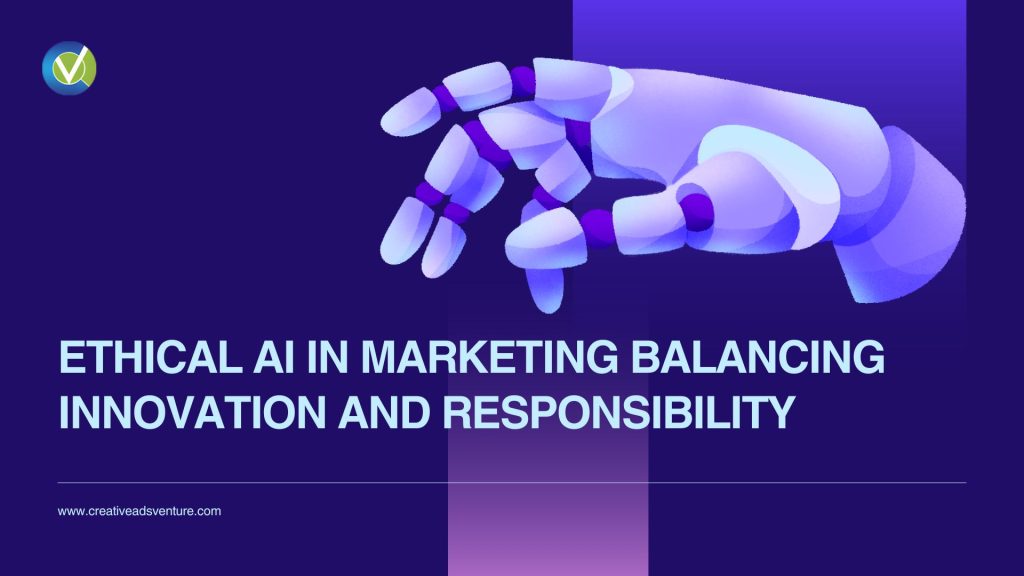Artificial Intelligence (AI) is transforming digital marketing, enabling brands to create hyper-personalized campaigns, analyze consumer behavior, and automate interactions. However, as AI continues to shape marketing strategies, ethical concerns surrounding data privacy, bias, and transparency have become critical. Ethical AI in marketing is not just about compliance; it’s about building trust, fairness, and long-term brand credibility.
The Importance of Ethical AI in Marketing
AI-driven marketing thrives on data, but ethical concerns arise when AI systems operate without transparency or fairness. Misuse of AI can lead to biased algorithms, misinformation, and invasion of consumer privacy. Ethical AI ensures that marketing strategies remain responsible, inclusive, and beneficial to both businesses and consumers.
Key Principles of Ethical AI in Marketing
- Transparency and Accountability
AI-driven marketing should be transparent about how data is collected, used, and stored. Brands must disclose when AI influences decision-making, ensuring consumers understand how their data shapes their online experiences. - Bias-Free Algorithms
AI models can inherit biases from the data they are trained on. To ensure fair representation, marketers must use diverse datasets and implement bias-detection measures to prevent discrimination in advertising and targeting. - Data Privacy and Security
With growing concerns about data privacy, brands must prioritize compliance with regulations like GDPR and CCPA. Ethical AI marketing involves obtaining user consent, anonymizing data where possible, and implementing strong cybersecurity measures. - Human Oversight
AI should augment human decision-making, not replace it. Marketers should regularly monitor AI-driven campaigns to ensure ethical compliance and intervene when AI-generated content or recommendations cross ethical boundaries. - Authenticity and Consumer Trust
AI should be used to enhance, not manipulate, consumer experiences. Brands that use AI ethically foster trust by avoiding deceptive practices such as deepfake ads, misleading recommendations, or algorithmic content suppression.
Examples of Ethical AI in Marketing
- Chatbots with Ethical Guidelines: Many brands use AI-powered chatbots to enhance customer service. Ethical AI ensures that chatbots provide accurate information, avoid misleading customers, and respect user data privacy.
- Inclusive Advertising: AI-driven ad targeting can sometimes reinforce stereotypes. Ethical AI prioritizes diverse representation in advertising to ensure inclusivity.
- Personalization Without Overreach: While AI can tailor recommendations, ethical AI ensures it doesn’t cross into invasive tracking that feels intrusive to users.
The Future of Ethical AI in Marketing
As AI evolves, ethical considerations will play an even bigger role in shaping its impact on marketing. Companies that embrace ethical AI practices will not only comply with regulations but also build a reputation for integrity and consumer-first marketing. The key to sustainable AI-driven marketing is a balance between innovation and responsibility—ensuring that technology serves humanity rather than exploits it.
By implementing ethical AI, brands can foster trust, drive engagement, and create meaningful, responsible interactions with their audience. The future of marketing isn’t just AI-powered—it’s AI-empowered with ethics at its core.

